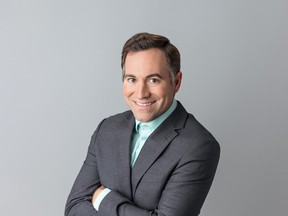As prenatal tobacco use declines, cannabis use is rising among expecting mothers, with some reporting they don’t see it as a risk.

Article content
Cannabis use during pregnancy has more than doubled in Ontario over the past decade according to a new study led by CHEO Research Institute scientist Dr. Daniel Corsi.
That increase was particularly high among young mothers. In 2020-2021, nearly one-quarter of all pregnant mothers under 19 reported using cannabis, a rate that declined slightly — by one per cent — the following year.
Advertisement 2
Story continues below
Article content
Overall, the study found a 250 per cent increase in cannabis use among pregnant women between 2012 and 2022. Younger women were more likely to use cannabis and other substances while pregnant, according to the research. After 2019, when cannabis was legalized in Canada, rates remained high among younger pregnant mothers, but there was also a “pronounced” increase across all age groups.
During the same period, prenatal tobacco use decreased and low alcohol use levels remained stable.
Researchers said the recent legalization of cannabis along with growing social acceptability may have fostered a lower perceived risk for cannabis use “and increase individuals’ willingness to report.” Researchers also noted that the COVID-19 pandemic led to increased use of cannabis in some demographics “including among pregnant individuals.”
Cannabis use during pregnancy has been associated with negative outcomes, including premature birth and lower birth rates. There are also some potential links to neurological impacts on children, said Corsi.
“The evidence is evolving in that area.”
Article content
Advertisement 3
Story continues below
Article content

The Society of Obstetricians and Gynecologists of Canada (SOGC) recommend cannabis not be used at all during pregnancy.
“The SOGC is concerned that legalization of cannabis may overshadow a growing body of medical research which suggests that the use of cannabis during pregnancy may be associated with the risk of low birth weight, preterm labour, stillbirth and may also negatively impact the developing baby’s brain,” the national organization said around the time cannabis was legalized.
The self-reported data about cannabis use during pregnancy used in the recently published research comes from BORN (Better Outcomes Registry and Network) Ontario, a registry and network that collects and analyzes data about pregnancy, birth and newborns in Ontario. It is funded by the Ontario government and is administered by CHEO.
Corsi, senior author of the research, is a scientist at the CHEO Research Institute and epidemiologist with BORN Ontario.
More than 12 per cent of participants reported using at least one substance during pregnancy. Tobacco was the most common — with 9.2 per cent of women reporting having smoked tobacco while pregnant, but that use decreased dramatically over the decade — by 45.7 per cent. About 2.4 per cent of pregnant women reported using alcohol, which remained relatively stable. Cannabis use increased.
Advertisement 4
Story continues below
Article content
Corsi said legalization of cannabis might have not only changed the way people perceive the risk of using it, but made people more likely to report using it.
He said the decline in tobacco and alcohol use during pregnancy offers a lesson for cannabis use – that public health campaigns and policies to limit prenatal use can make a difference.
The findings, Corsi said, suggest a need for increased education and awareness about cannabis use during pregnancy.
The research was published in the journal JAMA Network Open.
Our website is your destination for up-to-the-minute news, so make sure to bookmark our homepage and sign up for our newsletters so we can keep you informed.
Recommended from Editorial
Article content


Comments